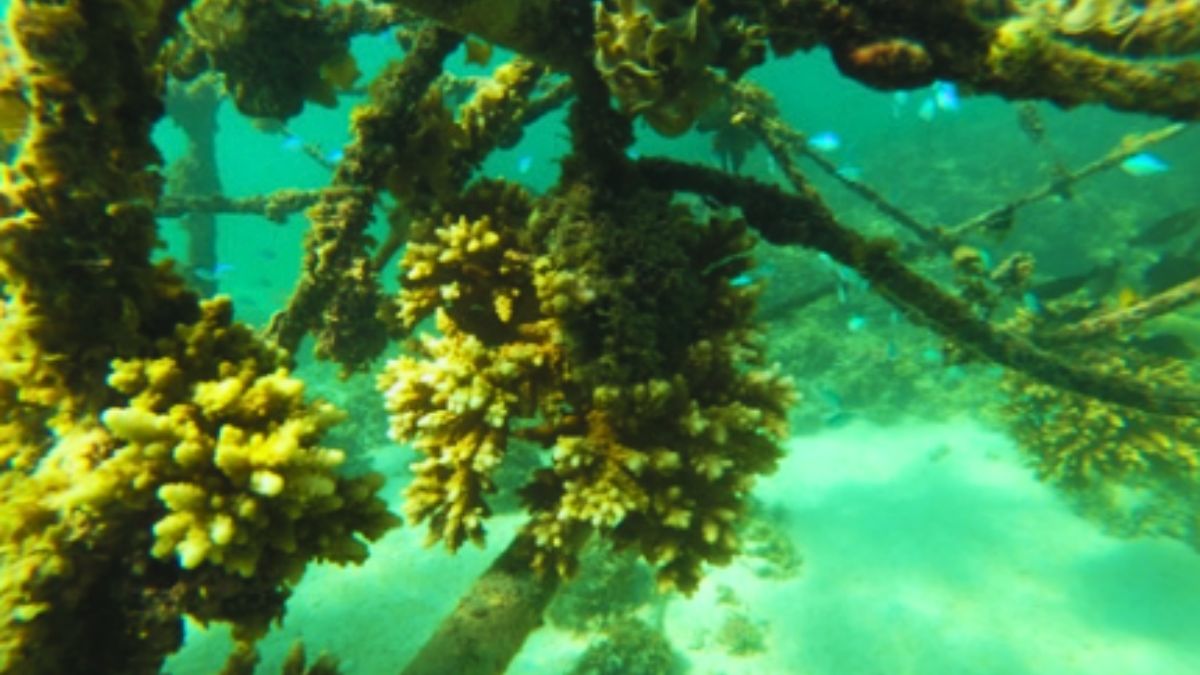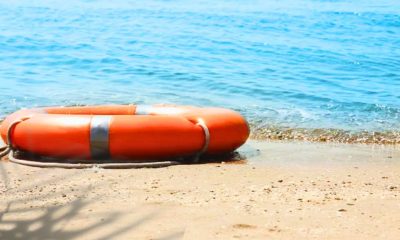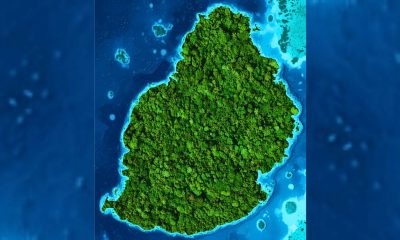News
Corals Down by 75%: Reefs Reeling from Cyclone Fury

The devastating loss is attributed to the impact of Cyclones Belal and Candice, which struck the region in the past. A recent report by the Albion Fisheries Research Centre has revealed that between 70% to 75% of corals planted in Mahébourg as part of a coral reef restoration project have died.
The report, dated February 2024, presented the findings of an ecological survey conducted by researchers from the Albion Fisheries Research Centre on two coral nurseries located within the Grand-Port fishing reserve.
The nurseries, managed by non-governmental organizations Eco-Sud and Reef Conservation, were part of a United Nations Development Programme (UNDP) funded project aimed at rehabilitating coral reefs to meet a changing climate future.
The survey found that the tables and cords used to support corals on the Mahébourg site were heavily covered in sediment of fluvial origin, resulting from heavy rainfall associated with the cyclones.
In contrast, corals on the Ile-aux-Aigrettes site were particularly affected by bleaching.
According to the report, Eco-Sud’s nurseries suffered approximately 70% mortality of corals due to sedimentation.
On the Mahébourg site, around 90% of corals died due to sedimentation, while on Ile-aux-Aigrettes, around 35% of corals died partially due to sedimentation and bleaching.
The remaining 65% were partially bleached but still alive. Reef Conservation’s nurseries recorded approximately 75% mortality of corals.
On the Mahébourg site, around 95% of coral fragments died due to sedimentation, while on Ile-aux-Aigrettes, around 25% died, with the remaining 75% still alive but partially bleached.
Eco-Sud’s Reaction
Vasisht Seetapah, Acting Head of Scientific Department at Eco-Sud, confirmed that the numbers reported in the Albion Fisheries Research Centre’s report align with their observations.
“In January, we faced an unprecedented phenomenon linked to Cyclone Belal. A combination of factors caused a massive freshwater influx into the Grand-Port lagoon.
The sudden and drastic change in salinity was too much for our coral reefs and nurseries to survive,” he explained.
Seetapah noted that they had observed similar devastation on sites near Ile-aux-Aigrettes. “We are at mid-project stage, aiming to transplant 80,000 coral fragments into Blue-Bay Marine Park by 2026 on a 1.6-hectare surface area.”
Project Overview
The “Restoring Marine Ecosystem Services by Rehabilitating Coral Reefs to Meet a Changing Climate Future” project is funded by UNDP at nearly USD 9.1 million.
e project targets three islands: Mauritius, Rodrigues, and Seychelles. The triple objective is:
- -Improving food security and reducing disaster risk by restoring degraded reefs
- -Managing and sharing knowledge, training, and sensitization to strengthen regional capacities for sustainable reef restoration
- -Establishing coral culture and nurseries
Efforts are being made to prioritize species that showed better resistance and resilience in future restoration sites that have been affected by similar phenomena.
The devastating impact of Cyclones Belal and Candice on coral reefs has highlighted the urgent need for sustainable reef restoration efforts.
The Eco-Sud project aims to promote resilience and adaptation strategies for coral reefs in the face of climate change.
By prioritizing species that can withstand extreme weather events and implementing measures to reduce sedimentation and bleaching, conservation efforts can help protect these vital ecosystems for future generations.
Source: Defi Media











